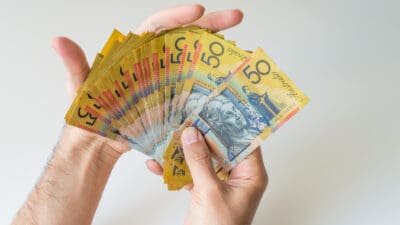Warren Buffett is almost universally regarded as the greatest living investor, and one of, if not the best investors of all time. Even though Buffett is well into his 90s today, he still runs his gigantic conglomerate Berkshire Hathaway Inc (NYSE: BRK.A)(NYSE: BRK.B) with enthusiasm.
As such, the stock buys and sells Buffett makes through Berkshire are always closely scrutinised by investors all around the world, when this data is publically released every three months.
As it happens, the latest 13F report from the US Securities and Exchange Commission (SEC) has just been released, covering the three months to 30 September. So let's take a look at it and see if ASX investors can learn anything from Buffett's latest market moves.
According to the 13F filing and Whale Wisdom, Buffett indeed made several notable changes to Berkshire's portfolio during the September quarter.
What stocks has Warren Buffett bought and sold?
The first thing to note is that Buffett continues to preside over a swelling pile of cash at Berkshire. Total cash and cash equivalents rose from US$147.4 billion in the prior quarter to US$157.2 billion last quarter.
No doubt this was partly fuelled by the torrent of dividends the company periodically receives. But some of it was also funded by some large sales.
Buffett completely closed out of no less than seven portfolio positions last quarter, some of which Berkshire has held for many years.
They were as follows:
- Activision Blizzard
- United Parcel Service Inc (NYSE: UPS)
- Mondelez Internaitonal Inc (NASDAQ: MDLZ)
- Celanese Corporation (NYSE: CE)
- Procter & Gamble Co (NYSE: PG)
- Johnson & Johnson (NYSE: JNJ)
- General Motors Co (NYSE: GM)
The Activision Blizzard exit probably eventuated thanks to the company's acquisition by tech giant Microsoft Corporation (NASDAQ: MSFT). However, all of the other exits are certainly notable. For example, Warren Buffett, through Berkshire, has owned some form of Procter & Gamble stock since 2005. Johnson & Johnson, since 2006.
Buffett also trimmed down the following positions, without selling out entirely:
- Amazon.com Inc (NASDAQ: AMZN)
- Aon plc (NYSE: AON)
- Chevron Corporation (NYSE: CVX)
- Global Life Inc (NYSE: GL)
- HP Inc (NYSE: HPQ)
- Markel Group Inc (NYSE: MKL)
However, it's worth keeping in mind that all of these sales were a drop in the ocean for Berkshire, representing approximately 1% of the company's portfolio by my calculations.
Buffett did make some acquisitions too. But the only one of note was an initiation of a US$8 million stake in Atlanta Braves Holdings Inc (NASDAQ: BATRA), the holding company of the Atlanta Braves baseball team. Since this investment is a veritable gain of sand on Berkshire's beach, it could well represent a personal sop for Buffett
What's more notable were the stocks that Buffett didn't touch.
The core is the core
Berkshire's core holdings, the stocks that his company is famous for and that make up the lion's share of Berkshire's portfolio, are as follows:
- Apple Inc (NASDAQ: AAPL)
- Bank of America Corp (NYSE: BAC)
- American Express Company (NYSE: AXP)
- Coca-Cola Co (NYSE: KO)
These holdings collectively make up around 70% of Berkshire's portfolio and were entirely unchanged over the quarter. Apple alone accounts for almost half of Berkshire's holdings.
So it's clear that Buffett's quarterly moves were more window dressings than anything else.
What can ASX investors learn from Buffett's latest moves at Berkshire?
It's usually difficult to decipher Buffett's moves and the lessons we can draw from them. After all, Buffett's investing prowess is pretty much unrivalled and what makes sense to him isn't always obvious to us mere mortals.
But I think the focus Buffett clearly maintains on his company's core holdings is of note. He obviously has complete faith in Berkshire's top holdings, evident from his trims of other small positions. ASX investors should be inspired by this conviction and commitment in my view.
Some of the companies he has sold or trimmed down are cyclical businesses though. Car maker GM, postal service UPS, oil titan Chevron and e-commerce giant Amazon are all exposed to the movements of the global economy more than most. So perhaps this tells us something about Warren Buffett's thinking about where the economy is heading next.
But that's just my take.









